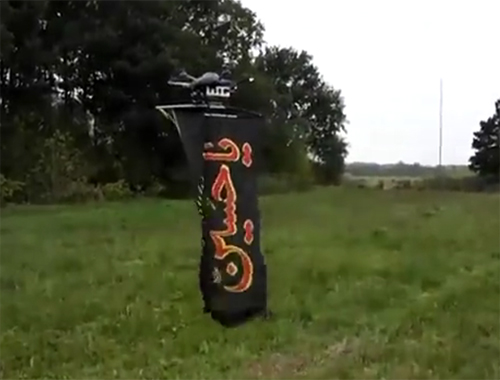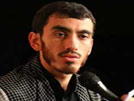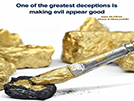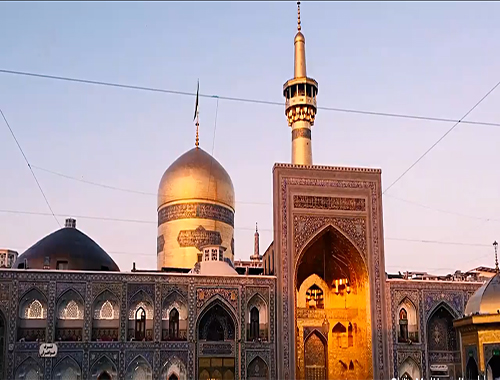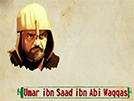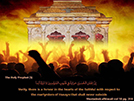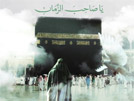Verse251
- Details
- Hits: 2850
(251) فَهَزَمُوهُم بِإِذْنِ اللّهِ وَقَتَلَ دَاوُدُ جَالُوتَ وَآتَاهُ اللّهُ الْمُلْكَ وَالْحِكْمَةَ وَعَلَّمَهُ مِمَّا يَشَاء
وَلَوْلاَ دَفْعُ اللّهِ النَّاسَ بَعْضَهُمْ بِبَعْضٍ لَّفَسَدَتِ الأَرْضُ وَلَكِنَّ اللّهَ ذُو فَضْلٍ عَلَى الْعَالَمِينَ
251. " Thus they routed them by Allah's leave, and David slew Goliath; and Allah gave him the kingship and wisdom and taught him of what He willed. And were Allah not to repel some people by means of other people, the earth would certainly be full of mischief; but Allah is Gracious to all (His) creatures."
Commentary:
It is completely certain that Allah will not leave such believers alone, although the number of them be small and the number of their enemy be large. That is why the verse expresses that they set out to fight against them and it was by the leave of Allah that they defeated the enemy. It says:
" Thus they routed them by Allah's leave, ..."
David, who was a very young lad, but was vigorous and brave, had attended the army of Saul to fight against the enemy. He succeded to kill Goliath.
"...and David slew Goliath; ..."
The young warrior threw one or two stones by means of a sling, which he had with him, towards Goliath. He utilized the sling so skilfully that the stone hit just upon the head and pierced the forehead of Goliath. So, Goliath cried loudly and fell down on the ground. At that moment, fear and terror rushed into the hearts of his troops. They began to flee. It seemed, Allah had decided to show his authority, here, and by demonstrating how a king, with all that glory and abundant force could be destroyed by a lad inexperienced in fighting, and particularly with an apparently simple and worthless tool, a sling.
Then it says:
"...and Allah gave him the kingship and wisdom and taught him of waht He willed. ..."
In this verse it has not been explicitly stated that this David is the same David who was the great prophet of the Israelites and was Solomon's father, yet the above mentioned phrase of the verse indicates that this David had attained the rank of Prophethood. At the end of the verse, the Qur'an points to a general law, thus it says:
"... And were Allah not to repel some people by means of other people, the earth would certainly be full of mischief; but Allah is Gracious to all (His) creatures."
This concluding part of the verse clearly indicates that the only aim or object of warfare should be nothing but dispelling of mischief and the establishment of peace on earth and not at all any territorial expansion.
* * * *
Explanation: (1)
An account of the formidable strength of the mighty forces of Goliath, is given in the Bible (1. Samuel 17: 4-11) David slew Goliath in a single combat. The Philistines seeing Goliath killed by David all of them fled and that was the end of the battle.
Quite a similar event took place in the early days of the start of Islam. The infidels of Mecca with all the strength of the strongest of their allies with the best and the choicest and the most experienced of their warrior heroes, attacked the Muslim refugees in Madina who then numbered only a few hundreds including women and children and who were practically unarmed and the enemy consisted of several full equipped battalions. The battle is called the battle of 'Ahzab' i.e. the battle of the Confederates. All the idolatrous tribes of Arabia had united in one body against the few hundreds of ill-equipped or practically unarmed Muslims. The mighty host was twelve thousand strong and there could be hardly any fight at all. It was the question of life and death for Muslims and Islam including the Holy Prophet himself. The well-known giant-like warrior hero of the enemy's strength leapt across the ditch which the Muslims had dug between themselves and the enemy's forces, and coming forward challenged the Holy Prophet to send any one to fight him in a duel or a single combat. The Holy Prophet turned towards the small band of his men and asked them if there was anyone who would answer 'Amr' on behalf of Islam and the Muslims. Though there were those present in the Muslim ranks who later, after the departure of the Holy Prophet prided themselves as the greatest heroes and the defenders of Islam and who also claimed to be the closest companions of the Holy Prophet during his life, but none stirred, and some of them even tried to hide their faces lest the choice of the Holy Prophet might fall upon them and they be commanded by the apostle of God to go to fight the giant like warrior standing fully equipped and well prepared to finish anyone that comes to face him. Every time the call was sounded by the Holy Prophet to his men for a match to meet 'Amr' there was no response even from those who claimed closest companionship with him save Ali Ibne Abi Taleb, who at every time readily stood up and cried: ' Ana lahu ya Rasullullah' (I am here for him O Prophet of God!). But the Holy Prophet asked Ali to sit down. Thrice did the Holy Prophet call for a match from his ranks and every time none but Ali stood up. Once some of the people gave cowardly answers acknowledging the matchless strength and the dauntless courage of the challenging hero of the enemy. Third time when again none but Ali stood up to fight the giant-like warrior, the Holy Prophet called forth Ali, set right his dress and placed his own turban on his head and bade him go to fight in the way of the Lord, praying to God for the triumph of Islam against the total strength of the idolatrous Arabia and declard:
'Qad Barazal 'Imanu Kulleh 'ila Kufre Kulleh.'
i.e. ' Certainly proceeds the Whole of the Faith against tthe Whole of the Infidelity.' ' Ali met Amr ', the details of which one can have from any of the detailed Muslim history, and ultimately within a few minutes Ali brought the severed head of 'Amr' the challenging idolator hero of the infidel's forces, and threw it before the feet of the Holy Prophet saying: " Here is, O Prophet of God! The head of the enemy of God and Islam ". at which the Holy Prophet (p.b.u.h.) thanked God for the victory and declared:-
' Darbatu Aliyin Youmal Khandaq Afdalu min 'ibadatuth thaqalayn.'
i.e. ' The one stroke of Ali on the Day of the Ditch (The battle is called the Battle of the Ditch), is superior to the service (prayers) of both the worlds." This saying of the Holy Prophet (p.b.u.h.) is well-known to the Muslim world and is invariably recorded by all historians and the traditionists and unanimously acknowledged and accepted by the Muslim world as a whole. As on the triumph of David against Goliath the enemy fled away, at the triumph of Ali against 'Amr' the combined forces of the Confederates of the enemy gave up the battle and left the field in chaos and confusion and the battle ended completely routed and - disappointed- forever.
(1) Adopted from the footnote of The Translation of the Holy Qur'an, by S.W. Mir Ahmed Ali, p. 221

